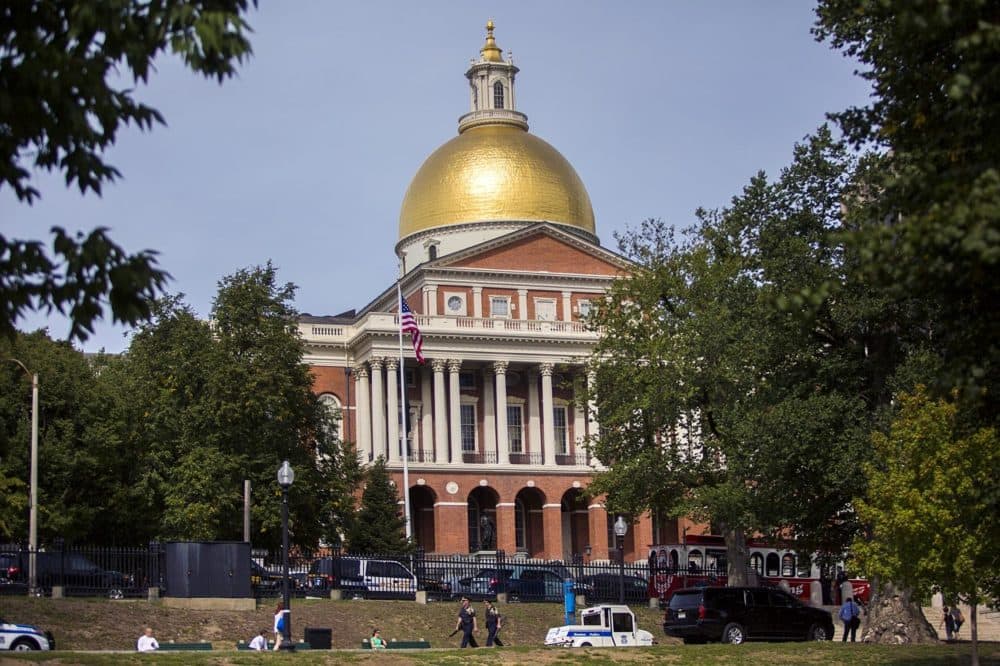Advertisement
Mass. House lays out plan for spending $3.65 billion from surplus and federal funds

House leaders detailed a $3.65 billion spending package Monday that would invest in housing, hospitals, schools and workforce development, proposing to draw from last year's state budget surplus and over half of its American Rescue Plan Act funds to prop up workers, industries and communities hurt by the COVID-19 pandemic.
The long-awaited plan to spend federal relief dollars gives the Legislature flexibility to spend more at a later date, depending on if and where Congress directs additional spending.
Ways and Means Chairman Aaron Michlewitz said the bill proposes to leave up to $2.4 billion in APRA funds untouched, and would spend about $1.15 billion of an estimated $1.5 billion in unbudgeted surplus funds.
"The spending of this money is critical to getting Massachusetts back better than before. Our goal is to responsibly fund priority areas that will stand the test of time and make systemic and equitable changes," House Speaker Ron Mariano said.
Mariano detailed the bill alongside his budget chief Ways and Means Chairman Aaron Michlewitz, Ways and Means Vice Chair Ann-Margaret Ferrante and Reps. Dan Hunt and Bud Williams, who he put in charge of the committees overseeing federal stimulus and racial equity.
Earlier in the morning, Michlewitz and Senate Ways and Means Chairman Michael Rodrigues issued a statement announcing an agreement between leadership of the two branches to put $500 million into the state' unemployment insurance trust fund and to use another $500 million for bonuses for low- and middle-income workers who provided critical services during the pandemic.
Employees who worked in-person during the state of emergency who earned up to 300% of the federal poverty level would qualify, Michlewitz said, noting that additional details for the program would come after conversations with the Baker administration.
Michlewitz said those were the two areas where the branches are in agreement, and although he said he expects the Senate to take up the bill in the coming weeks after it passes the House, he did not guarantee that a bill would reach Gov. Charlie Baker's desk before the Nov. 17 mid-session recess.
The bill proposes to put $600 million into housing, $350 million into the environment and climate change mitigation, $777 million into economic development, $750 million in the workforce, $765 million in health and human services, and $265 million in education.
Advertisement
Of the economic development investments, $200 million would be put toward tax relief for small business owners that paid personal income tax on state and federal relief grants during the pandemic.
Business groups have also been lobbying the Legislature to use federal stimulus and state surplus dollars to replenish the UI system, which was drained during the height of the COVID-19 pandemic, and reduce the long-term financial liability for employers.
Baker had proposed to use $1 billion of the state's fiscal year 2021 surplus for that purpose, but Democratic leaders are eyeing a smaller amount.
Along with $250 million for financially stressed hospitals and $70 million for nursing providers, Mariano said he and Health Care Financing Committee Chairman John Lawn have been working on policy reforms to "close loopholes" and "stabilize" the health care market.
The House also plans to release a health care reform bill as soon as this week with policy changes that Mariano said "dovetails" with spending lawmakers are targeting for the industry, though he did not elaborate on details.